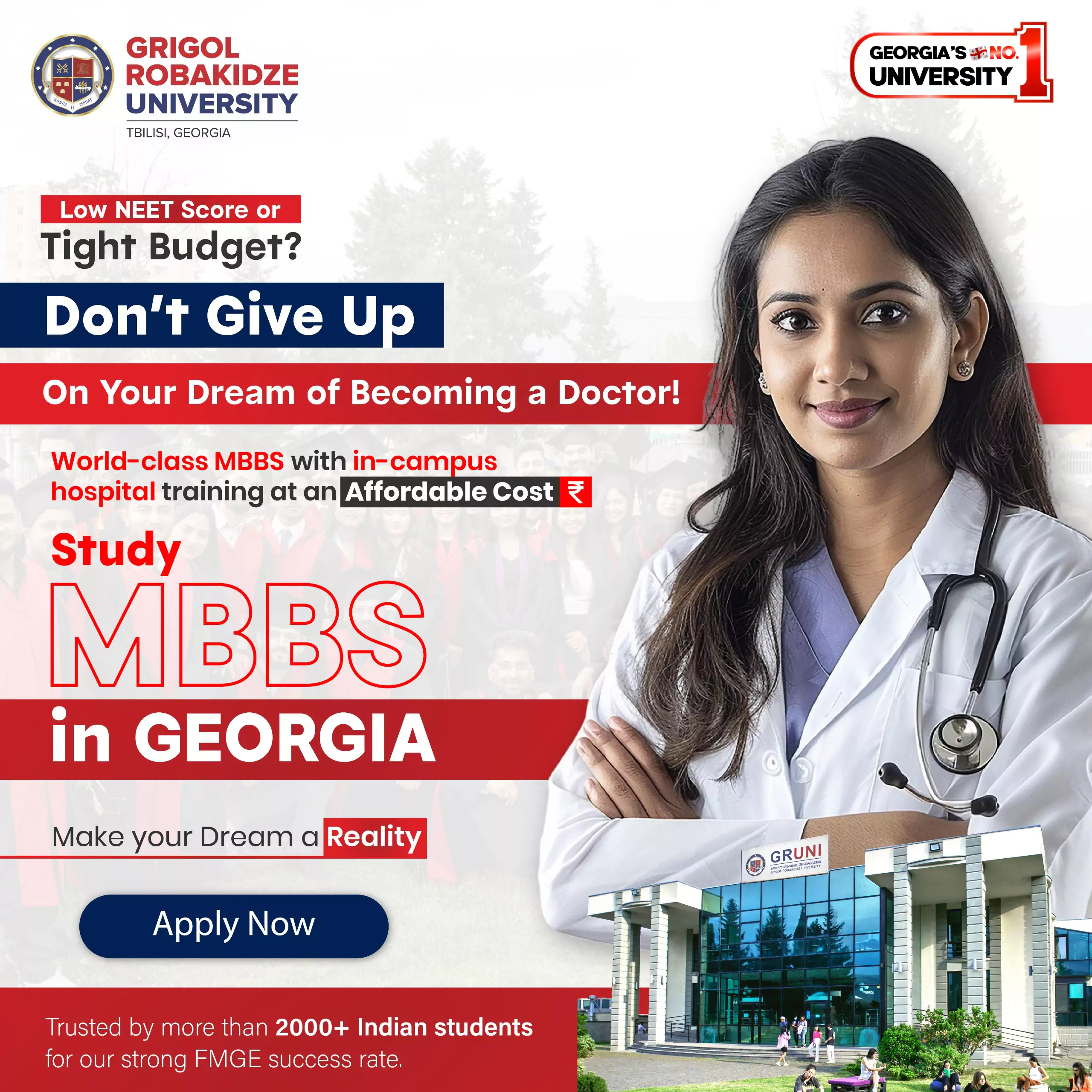Advantages and Disadvantages of Studying MBBS in Georgia: Georgia has become a preferred destination for students looking to pursue MBBS abroad. The country offers high-quality medical education at an affordable cost, following international standards and a European curriculum. Many universities in Georgia are recognized by global bodies like WHO and NMC, and offer English-medium programs, making it easier for international students, especially from India.
Studying the MBBS program in Georgia comes with many benefits such as modern infrastructure, experienced faculty and low tuition fees. These include adapting to a different curriculum and preparing for exams like FMGE to practice in India. Overall, Georgia provides a promising environment for medical education with manageable drawbacks.
[Page Index]
Advantages of Studying MBBS in Georgia for Indian Students
Georgia has become a preferred destination for Indian students aspiring to pursue MBBS abroad. The country is known for its affordable medical education, internationally recognized degrees, and student-friendly environment. With English-medium instruction and modern infrastructure, Georgia provides a perfect environment for international medical students. Below, we highlight the major advantages and disadvantages of studying MBBS in Georgia.
1. Affordable Living
Living costs in Georgia are reasonable, with affordable food, transportation and accommodation options. Dormitories and hostels are available at economical prices, and essentials are inexpensive compared to Western countries.
2. Low Tuition Fees
For many students from low-income backgrounds, studying MBBS abroad can be costly. However, Georgia offers much lower tuition fees compared to other countries, making it a top choice for Indian students.
3. Quality Education
Georgia offers quality medical education approved by the WHO, NMC, and other international bodies. MBBS is taught in English, making it easy for both Indian and international students to understand.
4. Numerous Medical Universities to Choose
Georgia has a wide range of medical universities to choose from, many of which are recognized globally. Students can select institutions based on their academic goals, budget, and personal preferences.
5. Globally Recognized Medical Degrees
The MBBS degree from Georgia is accepted worldwide. Graduates are eligible to practice in several countries after clearing the respective licensing exams, like FMGE.
6. No Concept of Donations or Capitation Fees
Unlike many Indian private medical colleges, Georgian universities do not charge any donation or capitation fees, easing financial pressure on students.
7. Safe and Pleasant Environment
Georgia is considered one of the safest countries in the region with low crime rates. The friendly and welcoming culture helps international students adapt easily.
8. Strong Medical Infrastructure
The Georgian government invests in developing the healthcare system and university facilities. Medical schools are well-equipped with modern labs and hospitals for practical training.
9. Accommodation and Indian Food Availability
Many universities offer Indian food in hostels or nearby mess services, making it easier for Indian students to adjust.
10. Good Hostel Facilities
Hostels provided by Georgian universities include facilities such as Wi-Fi, shared kitchens, and recreational areas. Some also have gyms or indoor games.
11. English-Medium Programs
MBBS courses are taught in English, eliminating language barriers and ensuring students understand the curriculum clearly.
12. High Literacy Rate and Education-Oriented Culture
Georgia boasts a 100% literacy rate and places a strong emphasis on education, making it a nurturing environment for academic pursuits.
Disadvantages of Studying MBBS in Georgia for Indian Students
The Disadvantages of Studying MBBS in Georgia for Indian Students are as follows:
1. FMGE Requirement
Indian students must clear the FMGE to practice in India after graduating. This exam has a relatively low pass rate and requires thorough preparation, but some universities like Grigol Robakidze University and TSMU have a good FMGE passing rate.
2. Harsh Climate
Some students may find Georgia’s weather conditions, particularly cold winters, difficult to adjust to.
3. No Indian Embassy in Georgia
The absence of an Indian Embassy in Georgia means students must travel to Armenia for consular services, which can be inconvenient.
4. Longer Course Duration
The MBBS program in Georgia typically spans 6 years, which is longer than the duration in some other countries like Bangladesh or Kyrgyzstan.
5. European Curriculum Adjustments
While the European curriculum promotes comprehensive development, it may be challenging for students not used to self-study or independent learning styles.
6. Cultural and Social Environment
While Georgia is generally welcoming, students may initially face challenges adapting to Georgian lifestyles and social norms, especially if it’s their first time living abroad. But in the changing world, Georgia emerges as the top country for a modern and peaceful environment for medical education.
In the last two decades, thousands of Indian students and families have emigrated here. So there is a large number of indian community living and working here.
7. Misleading Agents
Some education agents in India provide incorrect or exaggerated information about Georgian universities. Students should verify all details through official university websites.
8. Not in Europe or the EU
Georgia is located at the intersection of Europe and Asia but is not an EU member. Students should not expect the same rights or visas as EU students.
9. Visa and Deportation Issues
There have been incidents of students being denied entry despite having valid visas. Visa processing may involve interviews or English proficiency tests like IELTS.
10. Few Government Universities
Most medical institutions in Georgia are private. Students looking specifically for government institutions may have limited options.
Top Medical Colleges in Georgia for MBBS
The top MBBS Universities in Georgia and their establishment year are as follows :




For how many years neet score is valid to take admission in Georgia mbbs course
A NEET score is valid for three years from the date of declaration of results for MBBS admission abroad.
European Medical University Tbilisi, Georgia | No.1 University
God bless you mam for your exact and accurate information
Thanks for your valuable comment.
Is religious dress code ( face veil) is allowed in medical University?
Contact the abroad admission counsellor at 9999-709-233; they will guide you.